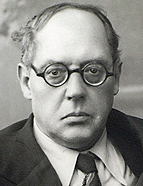

Journalist, teacher, politician, writer and historian, Alfredo Pimenta was one of the most irreverent figures of the first half of the 20th century in Portugal, due to his tendency to confront ideas in an abrasive manner and, in particular, his doctrinal non-linearity, which led him to become involved on numerous occasions in heated controversies with figures from a wide range of political and cultural fields – from republicans to monarchists and from liberals to traditionalists. Born in Penouços, in the parish of São Mamede de Aldão, municipality of Guimarães, on 3 December 1882, into a family of modest means, he soon moved to Braga with his parents (Manuel José Lopes Pimenta, a small landowner, and Maria Rosa), where he studied at the Colégio do Espírito Santo. Two years later, he returned to Guimarães to continue his studies, under the tutelage of his aunt and uncle, Silvestre Pimenta and Maria Emília de Meira, after the death of his parents. In his hometown, he was a regular visitor to the library of the Sociedade Martins Sarmento, which he would later describe as essential to his intellectual development. In 1899, he left for Coimbra, where he graduated in law in 1908, despite having tried unsuccessfully to abandon his degree and enrol in the Higher Course in Literature in Lisbon.
During the first quarter of the 20th century, he drifted politically from the republican to the monarchist camp and supported the solution that emerged on 28 May 1926. However, he did not hold any significant positions in the new regime. He was briefly appointed member of the Central Commission of the Superior Council of Public Instruction between 1933 and 1936, and for several years he was curator of the Torre do Tombo, which he briefly headed in 1949, shortly before his death. He was also the first director of the Municipal Archive of Guimarães (now bearing his name) between 1931 and 1950, and creator of the Boletim de Trabalhos Históricos , which is still published today. A founding member of the Portuguese Academy of History (where he often collaborated in a controversial manner, falling out with several academics and even being expelled between 1946 and 1947), he also participated in several other national and foreign cultural associations and institutions, such as the Association of Portuguese Archaeologists and the Portuguese Institute of Archaeology, History and Ethnography. A tireless publicist since his student days in Coimbra, throughout his life he edited or contributed to numerous publications, such as A Ideia Nova, A Nação, A Província, A Voz da India, A Voz Nacional, A Voz, Acção Realista, Acção Tradicionalista Portuguesa, Ala Moderna, Alma Nova, América Brasileira, Arquivo Literário, Arte & Vida, Bandarra, Brasília, Brotéria, Comércio de Guimarães, Contemporânea, Correio da Manhã, Correio do Minho, Correio do Sul, Época, Era Nova, Esfera, Gil Vicente, Ideia Nacional, Jornal do Comércio, Luz & Vida, Mocidade, Nação Portuguesa, O Dia, O Marcoense, O Minhoto, O Norte, Portugal Restaurado, Republica, Restauração, Revolução, Seara Nova, Serviço d´El-Rei, Tribuna Literária or Voz Publica.
This work is financed by national funds through FCT - Foundation for Science and Technology, I.P, in the scope of the projects UIDB/04311/2020 and UIDP/04311/2020.
